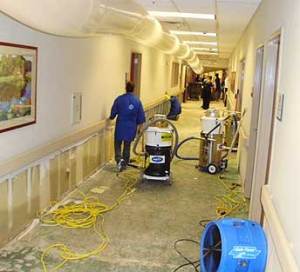
State inspectors have the authority to shut down an establishment that poses an "imminent health hazard" involving fire, flood, sewage backup, rodent infestation, bed bug infestation or "any other condition that could endanger the health and safety of guests, employees and the general public."
Becky Andrews checked into the Super 8 hotel in Bonner Springs last fall as she prepared to watch her son act in a play at the University of Missouri-Kansas City.
For Andrews, a retired high school chemistry teacher from Colorado, the night turned into an ordeal.
“I had this sensation of things crawling on me, but I never saw anything,” she said. “It took a long time for me to realize what was going on.”
After several “itchy-twitchy” hours, she said, she captured a live bug in a plastic cup and took it to the front desk the next morning to complain.
She said that when the hotel didn’t appear to take her seriously, she filed a complaint with the state.
A Kansas Department of Agriculture inspector visited the hotel on Nov. 3 and confirmed that Room 406 was infested with bed bugs.
The hotel was ordered to fix the problem, and a follow-up inspection was scheduled for Dec. 3. But the follow-up never occurred.
The state announced that day it was suspending its lodging inspection program because of budget cuts.
Hotel law
In Kansas, hotels, motels and bed-and-breakfasts are governed by the Lodging Establishment Regulations, a 54-page document that regulates the water temperature in hot tubs, the liners used in ice buckets, and the markings that delineate the deep and shallow ends of hotel swimming pools, among other things.
The Kansas Department of Agriculture licenses more than 800 lodging facilities, and until last year each of those was required to submit to an annual inspection focusing on safety and sanitation issues.
Under the system, each violation was noted in an inspection report, and follow-up inspections were scheduled when problems couldn’t be corrected immediately. About 11 percent of last year’s inspections required follow-up visits.
In addition to the routine inspections, the Department of Agriculture last year investigated 132 lodging complaints, 35 of which involved bed bugs. Inspectors said 11 of the bed bug complaints — including the one submitted by Andrews — were valid.
State inspectors have the authority to shut down an establishment that poses an “imminent health hazard” involving fire, flood, sewage backup, rodent infestation, bed bug infestation or “any other condition that could endanger the health and safety of guests, employees and the general public.”
Last year, imminent health hazard violations were issued 24 times. Six of the violations involved bed bugs.
Constantine Cotsoradis, deputy agriculture secretary, said that discontinue-operations orders, particularly in bed bug cases, usually apply only to areas of a hotel affected by the problem.
“We want to protect the public but do as little economic harm as possible to the business,” he said.
State law gives regulators the authority to impose civil penalties on establishments that experience repeated violations. Last year such a penalty was imposed only once — a $1,350 penalty assessed to the Knights Inn and Suites in Leavenworth.
During its final 12 months of operation — December 2008 through November 2009 — the state’s lodging inspection program sent inspectors to nearly 800 businesses, and most inspections uncovered at least some violations.
The businesses collectively were cited for 3,251 violations including soiled linens, moldy showers, and unsafe levels of chlorine in swimming pools.
The most common violations — those dealing with smoke detectors, carbon monoxide detectors and fire extinguishers — accounted for nearly 20 percent of the total.
http://www.kansas.com/2010/02/21/1191720/no-state-money-for-hotel-inspections.html
 bed bugs, mold issues, as well as water and sewer…Code enforcement officers said an angry customer called them to complain after noticing bed bug bites on her children and roaches falling from the ceiling…”
bed bugs, mold issues, as well as water and sewer…Code enforcement officers said an angry customer called them to complain after noticing bed bug bites on her children and roaches falling from the ceiling…”



